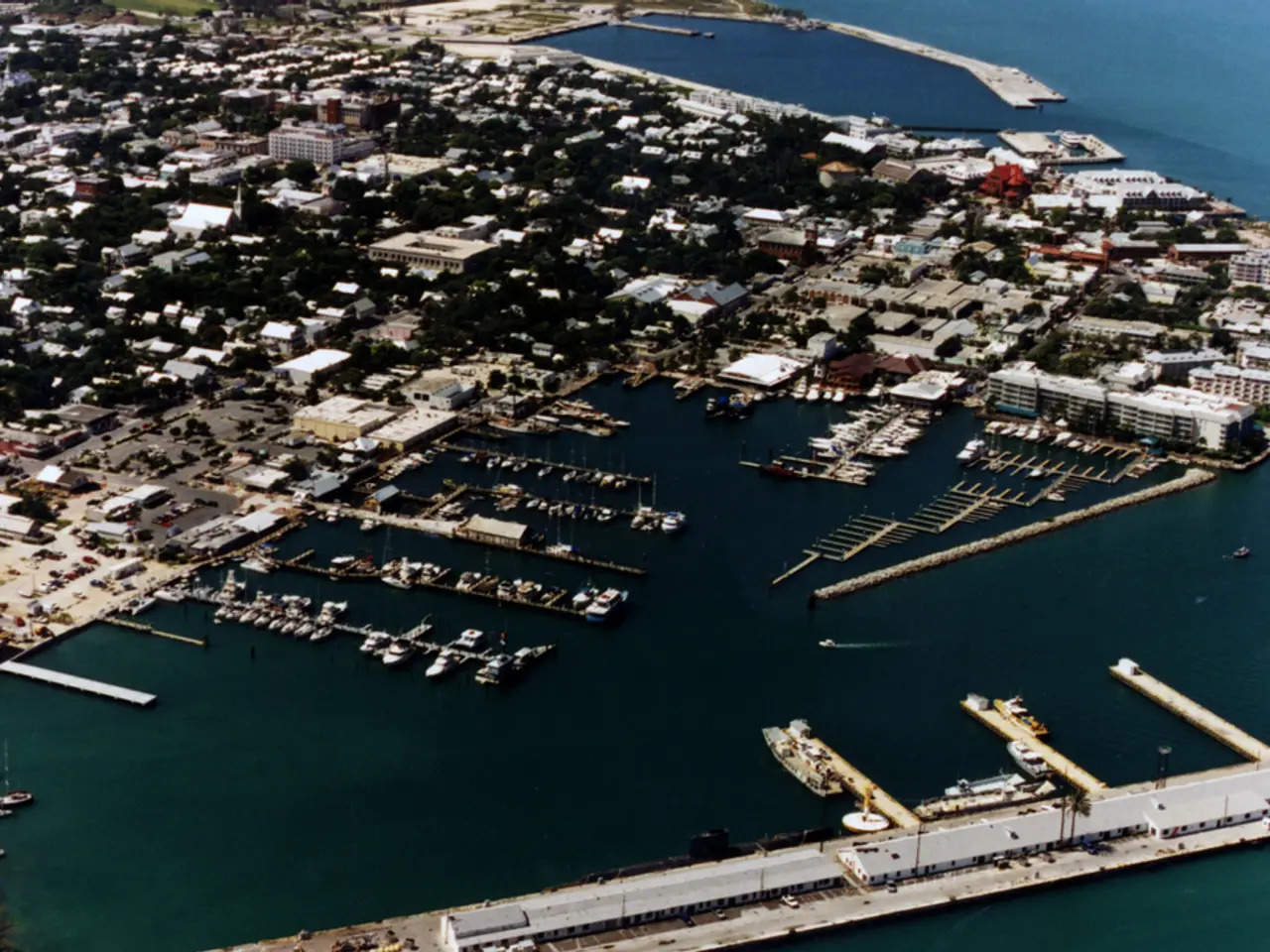Maritime accident in Cuxhaven results in oil spill from vessel damage
In the early hours of July 23, 2025, a significant incident occurred off the coast of Cuxhaven, Germany, as the product tanker *Capella* collided with the offshore supply vessel *Coastal Legend*, resulting in a fuel spill of approximately 6,000 liters (6 cubic meters) of marine diesel oil, with estimates suggesting up to 12,000 liters might have leaked from *Coastal Legend*'s full tank.
The emergency response has been swift and coordinated, with the German Federal Agency for Technical Relief (THW), Cuxhaven Fire Department, and Water Police working tirelessly to contain and recover the spilled oil. Containment booms have been deployed around the spill area to prevent its spread, while oil skimmers and suction pumps are being used to remove oil from the water surface. Divers have also been sealing the leak on the *Coastal Legend* and pumping out remaining fuel using the bunker ship *HERTA* to stop further leakage.
Approximately 80 to 100 cubic meters of oily water mixture have been collected so far, with monitoring by aircraft (DO 228) ensuring that the oil does not reach sensitive areas like the Elbe River, which has been successfully protected thus far. Oil recovery vessels such as *KNECHTSAND* continue to provide support for the cleanup efforts.
Greenpeace marine biologist Thilo Maack and the Nature and Biodiversity Conservation Union (Nabu) have expressed concerns about potential long-term environmental damage following the incident. Maack highlighted that oil prevents the exchange of oxygen between water and air, potentially suffocating planktonic invertebrates, and that some oil has drifted under harbor structures where cleanup is difficult. Nabu has demanded consequences for the causes of the accident, suggesting better equipping of emergency services, the introduction of a compulsory pilotage system, and the ban on using highly toxic oils in shipping.
Lower Saxony's Environment Minister Christian Meyer has praised the quick and competent intervention of the salvage command and emergency services. Meyer also warned of the potential threat a major oil disaster could pose to the World Heritage Site and bird species in the Wadden Sea. Despite the concerns, the authorities are aiming to minimize long-term harm, with continued monitoring and environmental assessments essential to gauge any residual impact.
The ships involved in the collision have been secured in the harbor, with no reported sinking risk. Fortunately, no injuries were reported, and shipping traffic in the Elbe River remains unaffected.
In summary, authorities have mounted a comprehensive emergency response focusing on containment, recovery, and preventing the spill from spreading to critical waterways. The potential long-term consequences for the local marine ecosystem depend on the completeness of the cleanup and natural degradation of pollutants.
- What about the potential financial implications for businesses in the Cuxhaven area, such as the fishing industry, tourism, and real-estate?
- Can data and cloud computing systems be used to track the movement of the spilled oil and predict its impact on the local climate and weather patterns?
- As individuals, what steps can we take to reduce our own carbon footprint, such as investing in renewable energy sources, adopting a more sustainable lifestyle, and eating less meat and dairy products (food-and-drink)?
- How can the energy sector transition towards cleaner and more sustainable alternatives, like solar and wind power, to prevent similar incidents in the future and mitigate climate-change impacts?
- With concerns about long-term environmental damage, can we foresee a potential impact on the global travel industry, particularly for destinations that rely on pristine marine ecosystems for tourism, such as the Maldives or the Great Barrier Reef?
- Given the importance of the oil-and-gas industry in Germany's economy, should there be a shift in focus towards environmental-science and investing in innovative technologies in order to limit the industry's negative impact on the environment?
- How will this oil spill affect the personal-finance of people living in the Cuxhaven area, as well as businesses, in terms of insurance claims, economic loss, and potential legal charges?
- As consumers, we can support companies that prioritize environmental responsibility and ethical practices when shopping for goods, services, or even sports equipment.
- With leaked oil reaching under harbor structures and cleanup being difficult, what steps can be taken to develop technologies that can effectively clean and restore such environments in a faster and more efficient manner?
- As the ocean currently absorbs about a quarter of all human-made carbon dioxide emissions, how might this oil spill further exacerbate the ongoing climate-change, contributing to rising temperatures, extreme weather events, and sea-level rise?






